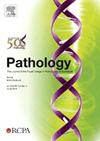Continued improvement in the development of the SARS-CoV-2 whole genome sequencing proficiency testing program
Abstract
Application of whole genome sequencing (WGS) has allowed monitoring of the emergence of variants of concern (VOC) of severe acute respiratory syndrome-related coronavirus 2 (SARS-CoV-2) globally. Genomic investigation of emerging variants and surveillance of clinical progress has reduced the public health impact of infection during the COVID-19 pandemic. These steps required developing and implementing a proficiency testing program (PTP), as WGS has been incorporated into routine reference laboratory practice. In this study, we describe how the PTP evaluated the capacity and capability of one New Zealand and 14 Australian public health laboratories to perform WGS of SARS-CoV-2 in 2022. The participants' performances in characterising a specimen panel of known SARS-CoV-2 isolates in the PTP were assessed based on: (1) genome coverage, (2) Pango lineage, and (3) sequence quality, with the choice of assessment metrics refined based on a previously reported assessment conducted in 2021. The participants' performances in 2021 and 2022 were also compared after reassessing the 2021 results using the more stringent metrics adopted in 2022. We found that more participants would have failed the 2021 assessment for all survey samples and a significantly higher fail rate per sample in 2021 compared to 2022. This study highlights the importance of choosing appropriate performance metrics to reflect better the laboratories' capacity to perform SARS-CoV-2 WGS, as was done in the 2022 PTP. It also displays the need for a PTP for WGS of SARS-CoV-2 to be available to public health laboratories ongoing, with continuous refinements in the design and provision of the PTP to account for the dynamic nature of the COVID-19 pandemic as SARS-CoV-2 continues to evolve.

 求助内容:
求助内容: 应助结果提醒方式:
应助结果提醒方式:


